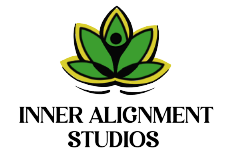In today’s world, many individuals are exploring the differences between organic healing and conventional medicine. With an increasing focus on natural remedies, it’s crucial to understand how these two approaches compare. This blog will guide you through the key aspects that distinguish organic healing from more traditional methods, helping you make informed decisions about your health.
Understanding Organic Healing
Organic healing focuses on natural remedies, emphasizing holistic approaches that treat the mind, body, and spirit. This section will explore the principles of organic healing and its growing popularity.
At its core, organic healing promotes the body’s self-healing abilities. Rather than just addressing symptoms, practitioners aim to uncover and treat the root causes of ailments, fostering overall well-being.
With its rise in popularity, more people are turning to organic healing as they seek alternatives to conventional practices. This trend reflects a broader desire for wellness and a connection to natural processes.
Furthermore, common modalities within organic healing include herbal medicine, acupuncture, and mindfulness practices. Each of these methods offers unique benefits and techniques aimed at restoring balance and health.
Defining Conventional Medicine
Conventional medicine relies on scientifically proven methods, including pharmaceuticals and surgeries. This section will clarify what constitutes conventional medical practices and their historical significance.
Often viewed as the standard form of healthcare, conventional methods offer quick interventions for acute conditions. Doctors are trained to diagnose and treat illnesses based on extensive research and clinical trials.
However, this approach can sometimes overlook the importance of lifestyle factors and preventive care. Understanding this limitation can inform individuals as they navigate their healthcare choices.
Key Differences Between Organic Healing and Conventional Methods
This section will break down the most significant contrasts, including treatment philosophies, effectiveness, and potential side effects. Understanding these differences can help you choose the right path for your health.
One major difference lies in philosophy: while organic healing fosters a comprehensive approach to health, conventional medicine often zeroes in on specific symptoms. This distinction shapes the entire patient experience.
Additionally, the potential side effects of treatments diverge significantly. Organic methods are generally perceived as safer, with fewer reported negative reactions, whereas conventional treatments can occasionally come with serious risks.
For those seeking to avoid pharmaceuticals, organic healing presents appealing alternatives. However, the effectiveness of these methods may vary profoundly depending on the individual and the health condition being treated.
Benefits of Organic Healing
Organic healing offers numerous benefits such as fewer side effects and a focus on preventive care. This section will delve into various advantages of choosing organic methods over conventional treatments.
One significant advantage is the emphasis on nutrition and lifestyle changes as preventive measures. Organic healing doesn’t just treat existing conditions; it empowers individuals to take charge of their health journeys.
Moreover, organic healing often encourages the use of natural herbs and therapies, many of which have been used for centuries. This deep-rooted wisdom can provide insights into managing health effectively.
Individuals often report an enhanced sense of connection to their bodies when practicing organic healing. This mindful approach can lead to improved mental wellness, fostering a holistic sense of achievement in personal health goals.
Drawbacks of Conventional Medicine
While effective, conventional medicine may have drawbacks like dependency on medications and potential side effects. This part will highlight the challenges of relying solely on conventional treatments.
Sometimes, patients may find themselves in a cycle of treatment without addressing the underlying issues behind their health complaints. This cycle, while providing temporary relief, can lead to long-term dependency on medications.
Additionally, the hurried nature of conventional visits often leaves patients feeling unheard. This lack of personalized attention can diminish the overall trust and satisfaction with their healthcare experience.
Making an Informed Choice
It’s essential to weigh the pros and cons of both methods carefully. This section will provide tips for making informed health choices that suit your individual needs.
Start by assessing your health condition and lifestyle preferences. Understanding your unique situation can guide you towards the most suitable approach—be it organic healing, conventional methods, or a blend of both.
Considering consulting a healthcare professional who respects your views and preferences. Finding a practitioner who values both techniques can lead to a more integrated healthcare journey.
Final Thoughts
Ultimately, the choice between organic healing and conventional methods depends on individual preferences, health conditions, and belief systems. It’s important to consider the benefits and drawbacks of each approach and consult with healthcare professionals before making decisions about treatment.


